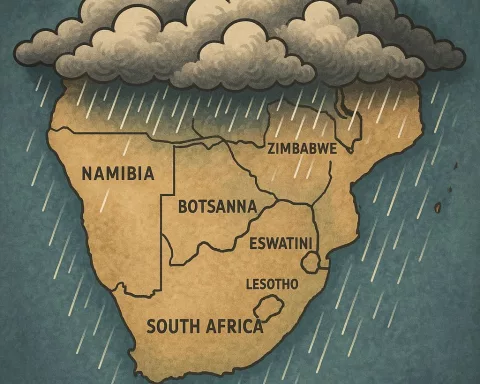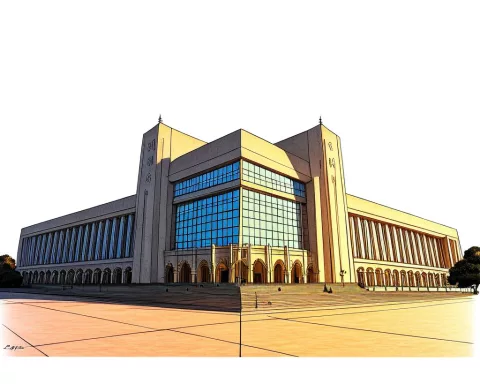The Conference of Speakers and Presiding Officers of the Commonwealth held its annual meeting in Kampala, Uganda in January 2024. The conference focused on topics such as climate change, diversity and inclusivity in parliaments, security measures, and the role of speakers and presiding officers in building consensus for parliamentary business. Beyond political and academic significance, the event provided a platform for diverse voices and informal networking opportunities. The event celebrated the diversity of the Commonwealth’s parliamentary institutions and reaffirmed the crucial role that parliamentary figures play in shaping the future of democracy.
What is the Conference of Speakers and Presiding Officers of the Commonwealth (CSPOC)?
The CSPOC is an assembly committed to the dissemination and understanding of various manifestations of parliamentary democracy. Its annual meetings provide a unique platform for Speakers and Presiding Officers from the independent sovereign nations of the Commonwealth. These meetings are integral to maintaining, nurturing, and promoting neutrality and fairness in their respective parliaments, contributing to the evolution of parliamentary institutions.
In early January 2024, Kampala, Uganda played host to an influential gathering of key parliamentary figures. This marked the convening of the 27th Conference of Speakers and Presiding Officers of the Commonwealth (CSPOC). Heading the delegation from South Africa was none other than the Chairperson of the National Council of Provinces, Mr. Amos Masondo. Alongside him were a range of esteemed personalities, including Ms. Mmatlala Boroto, the National Assembly House Chairperson for Internal Arrangements, and high-ranking international relations officials from the parliament.
Established in 1969, the Conference of Speakers and Presiding Officers of the Commonwealth (CSPOC) is an assembly committed to the dissemination and understanding of various manifestations of parliamentary democracy. Its annual meetings provide a unique platform for Speakers and Presiding Officers from the independent sovereign nations of the Commonwealth. These meetings are integral to maintaining, nurturing, and promoting neutrality and fairness in their respective parliaments, contributing to the evolution of parliamentary institutions.
2. Delving into Pertinent Themes
The inaugural plenary of the three-day summit was divided based on two critical themes. The first theme was “Environment, Climate Change and the Role of Parliament,” while the second revolved around “Diverse and Inclusive Parliaments (Youth and Gender Sensitivity).” These themes were extensively examined in workshops that concluded the day’s activities.
The second day’s program was dominated by the subject of security measures for parliamentarians and parliaments, an issue of growing relevance in today’s world. Delegates also dwelled on the topic of health and well-being support within parliaments, underscoring the crucial role played by Speakers and Presiding Officers in this context.
The summit’s final day featured a unique plenary session, steered by Deputy Chair of the Rajya Sabha in India, Mr. Shri Harivansh. His presentation addressed the subject: “Building Consensus for Parliamentary Business – The Role of Speakers and Presiding Officers.” Mr. Harivansh’s speech brought the conference proceedings to a close, encapsulating the essence of the discussions and insights exchanged over the three days.
3. Remembering the Past and Fostering Future Connections
Not merely a venue for discourse and the exchange of insights, the conference also served as an opportunity to look back at the rich history of the Commonwealth’s parliamentary institutions. The parliament’s seat, presently situated in Cape Town, is a significant symbol of South Africa’s democratic journey. However, it’s worth noting that its location could be altered via an Act of Parliament, backed by a majority of the National Assembly’s members, shedding light on the fluid and dynamic nature of democratic institutions.
The conference also held considerable value for informal interactions and networking, beyond its political and academic significance. Participants had the opportunity to organize tours, witness debates, and partake in discussions that transcended the formal agenda. These facets of the conference, often overshadowed in conventional narratives, play a substantial role in the progression of democratic processes and comprehension.
4. A Platform for Diverse Voices
Prominent members, including Mr. Willem Frederik Faber, the Democratic Alliance’s representative on the provincial list for the province of Northern Cape, were provided a platform to interact with international colleagues. Faber, a member of the Portfolio Committee on International Relations and Cooperation, brought his unique perspective and insights to the conference’s discussions.
To sum it up, the 27th CSPOC in Kampala, Uganda was an event of immense significance. It was a celebration and exploration of the vibrant diversity of the Commonwealth’s parliamentary institutions. More importantly, it was a reaffirmation of the role that parliamentary figures play in shaping the future of democracy. The implications of this event will undoubtedly echo through the policies, decisions, and actions of the Commonwealth’s sovereign states in the forthcoming years.
What were the two themes discussed during the inaugural plenary of the summit?
The first theme discussed during the inaugural plenary of the summit was “Environment, Climate Change and the Role of Parliament,” while the second revolved around “Diverse and Inclusive Parliaments (Youth and Gender Sensitivity).”
What was the focus of the second day’s program at the summit?
The second day’s program at the summit focused on the subject of security measures for parliamentarians and parliaments, along with the topic of health and well-being support within parliaments.
Who led the unique plenary session on the final day of the summit?
The unique plenary session on the final day of the summit was led by Deputy Chair of the Rajya Sabha in India, Mr. Shri Harivansh. His presentation addressed the subject: “Building Consensus for Parliamentary Business – The Role of Speakers and Presiding Officers.”
What was the significance of the conference beyond its political and academic significance?
The conference also held considerable value for informal interactions and networking, beyond its political and academic significance. Participants had the opportunity to organize tours, witness debates, and partake in discussions that transcended the formal agenda, which plays a substantial role in the progression of democratic processes and comprehension.
Who was provided a platform to interact with international colleagues during the conference?
Prominent members, including Mr. Willem Frederik Faber, the Democratic Alliance’s representative on the provincial list for the province of Northern Cape, were provided a platform to interact with international colleagues.
What was the overall significance of the 27th CSPOC in Kampala, Uganda?
The 27th CSPOC in Kampala, Uganda was an event of immense significance, celebrating and exploring the vibrant diversity of the Commonwealth’s parliamentary institutions and reaffirming the role that parliamentary figures play in shaping the future of democracy. The implications of this event will undoubtedly echo through the policies, decisions, and actions of the Commonwealth’s sovereign states in the forthcoming years.












